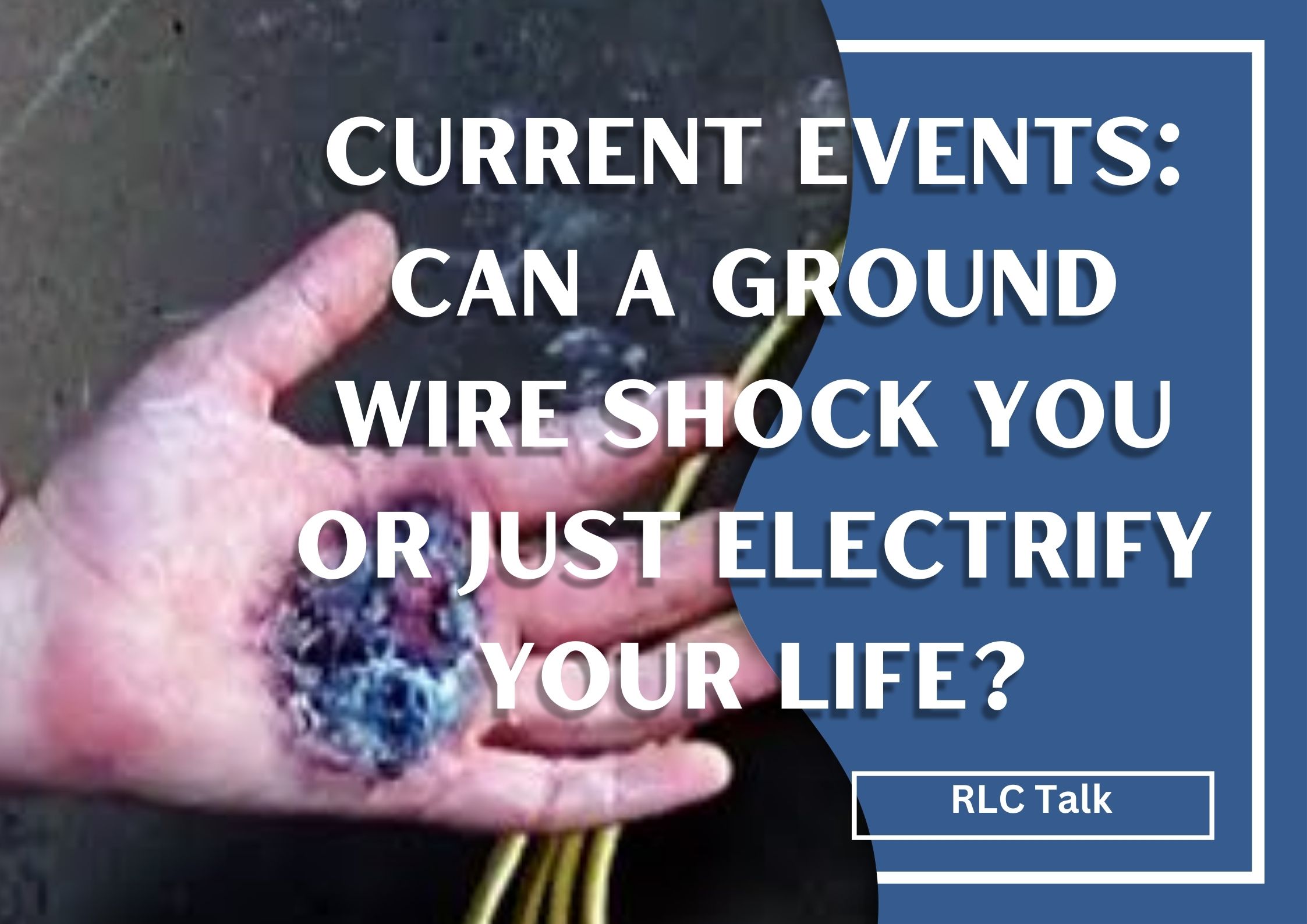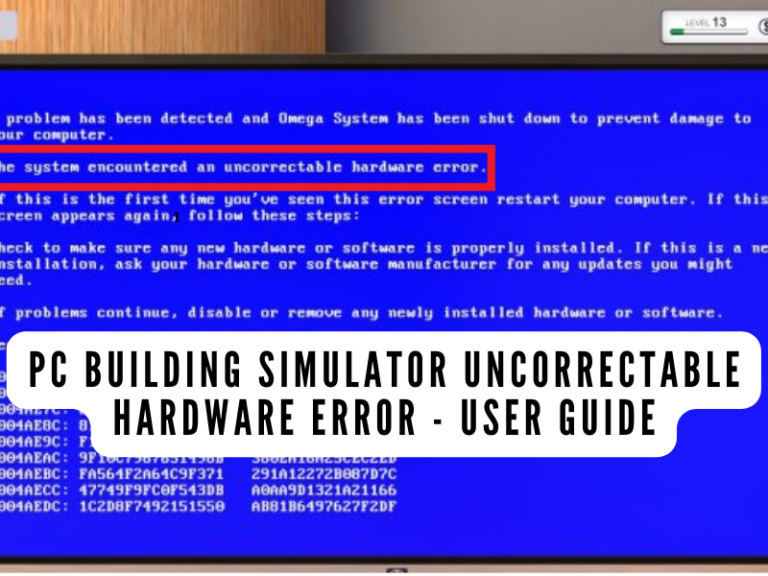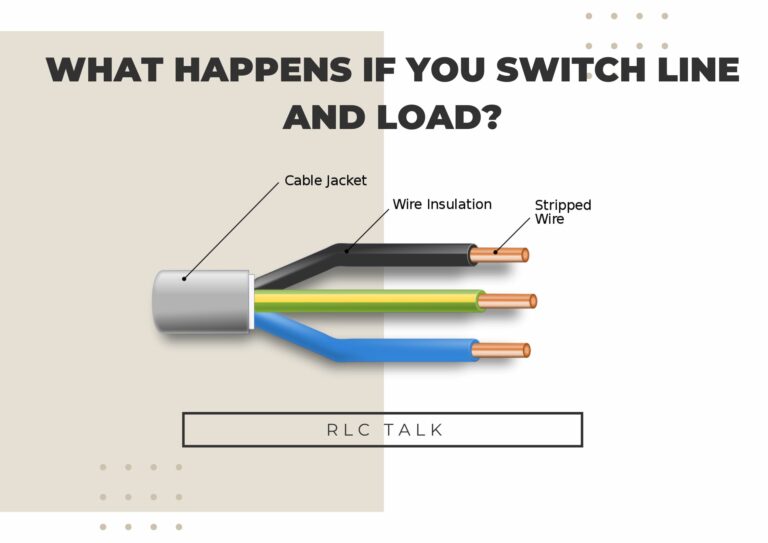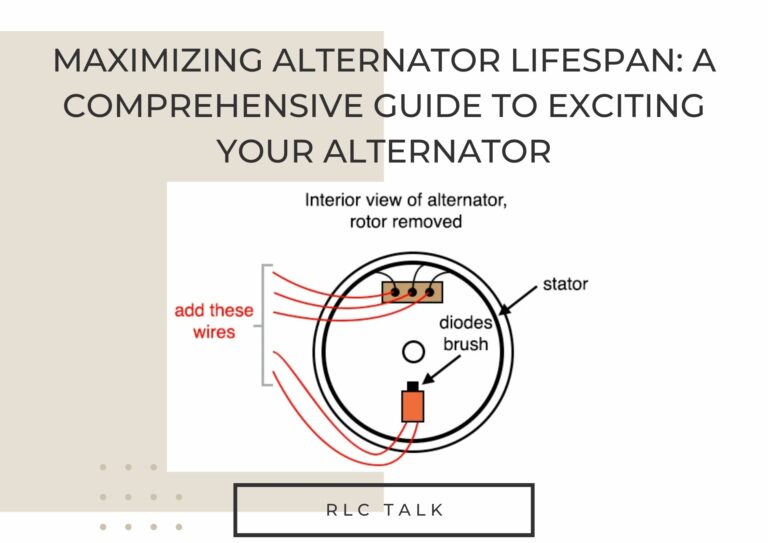Current Events: Can a Ground Wire Shock You or Just Electrify Your Life?
Do you know that electrical accidents are among the leading causes of workplace injuries and deaths? Shockingly, many of these incidents involve electrical grounding systems, which are supposed to provide safety to workers and users of electrical appliances.
In this article, we’ll explore the topic of whether a ground wire can shock you. We’ll discuss how grounding systems work, the factors that affect the risk of electrical shock from a ground wire, and what to do if you get shocked. We’ll also provide some tips on how to prevent electrical shock from a ground wire.
By the end of this article, you’ll have a better understanding of the importance of electrical safety and how to protect yourself and others from electrical accidents.
A ground wire, also known as an equipment grounding conductor, is a safety feature in electrical systems that provides a path for electrical current to flow to the ground in case of a fault or short circuit. This prevents the buildup of electrical energy and reduces the risk of electric shock, electrocution, or fire.
Grounding is a critical aspect of electrical safety and is required by electrical codes and regulations. Without proper grounding, electrical systems can pose serious risks to users, including electrical shock, electrocution, and damage to appliances and equipment.
How Does a Ground Wire Work?
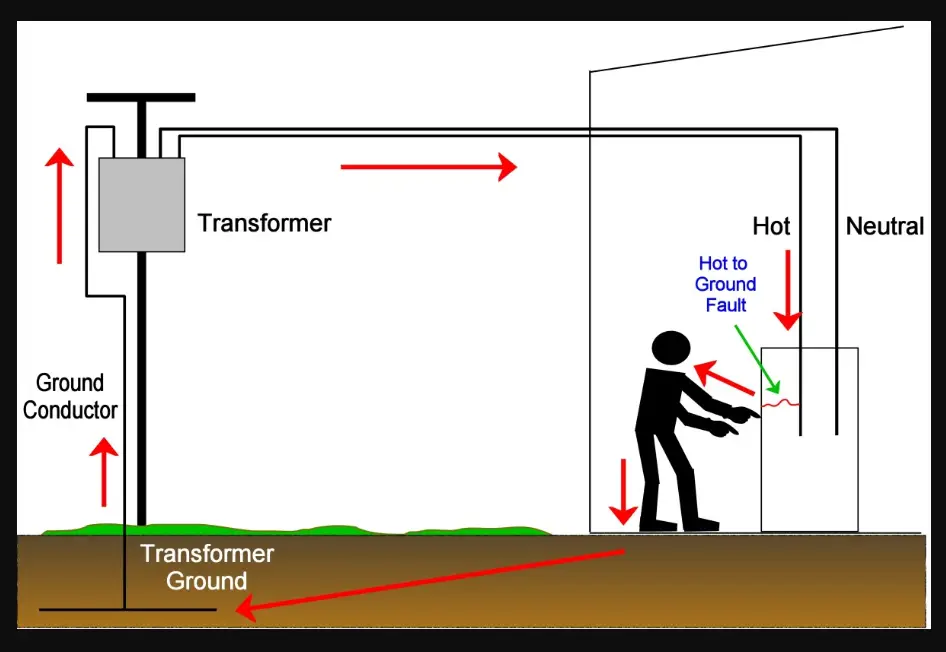
Grounding is a concept that refers to the process of connecting a conductive object to the earth or to a conductor that serves as an electrical neutral point. This provides a path for electrical current to flow to the ground in case of a fault or short circuit.
There are different types of grounding systems, including earthing systems, electrode systems, and lightning protection systems. Earthing systems typically use a conductive material, such as copper or aluminum, to connect the electrical system to the earth.
Electrode systems use a grounding rod, pipe, or plate to provide a low-resistance path to the earth. Lightning protection systems use air terminals and conductors to protect buildings and other structures from lightning strikes.
Components of a grounding system include the ground wire or conductor, which is usually a green or bare wire, and the ground rod or plate, which is buried in the earth. The ground wire is connected to the grounding system and provides a path for electrical current to flow to the ground in case of a fault or short circuit.
A key feature of grounding systems is the presence of a grounding electrode conductor, which is a conductor that connects the grounding system to the earth. This provides a low-resistance path for electrical current to flow to the ground and prevents the buildup of electrical energy that can lead to electrical accidents.
Can a Ground Wire Shock You?
Ground wires are designed to provide safety by directing electrical current away from people and equipment in case of a fault or short circuit. However, under certain circumstances, a ground wire can still pose a risk of electric shock.
One factor that affects the risk of electrical shock from a ground wire is the amount of current flowing through it. A ground wire is designed to carry current only in the event of a fault or short circuit, which means that under normal conditions, there should be no current flowing through it. However, if a fault occurs and a large amount of current flows through the ground wire, it can cause electric shock.
Another factor that affects the risk of electrical shock from a ground wire is the difference between the voltage of the ground wire and that of the object or person touching it. A ground wire is designed to be at the same potential as the earth, which means that it should have a voltage of zero. However, if the object or person touching the ground wire has a voltage potential that is different from that of the ground wire, it can cause electric shock.
It’s important to note that a ground wire is not the same as a hot wire, which carries electrical current under normal operating conditions. A hot wire can cause electric shock even if it’s not faulty, whereas a ground wire should not carry current under normal operating conditions.
Some common situations that may lead to electric shock from a ground wire include faulty appliances or electrical systems, damaged or corroded ground wires, and improper installation of grounding systems.
What to Do If You Get Shocked by a Ground Wire?
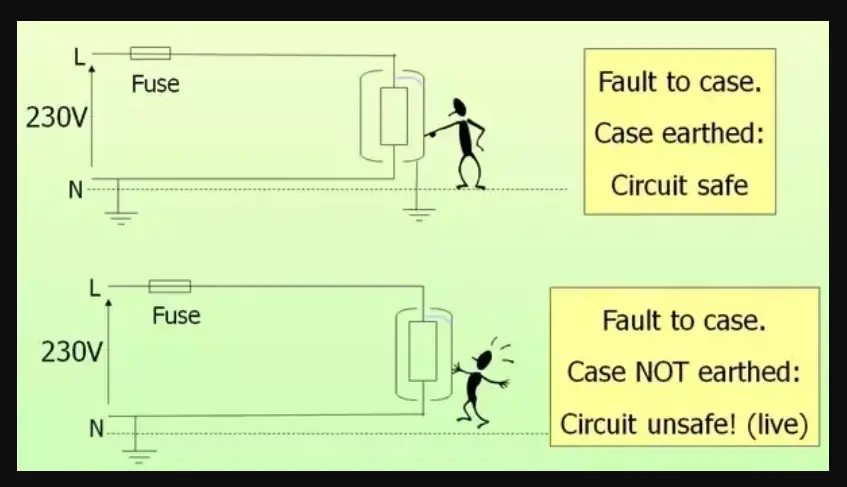
If you ever experience electric shock from a ground wire, it’s important to take immediate action to ensure your safety. Here are some steps you should take:
Disconnect the power source
The first thing you should do is disconnect the power source to prevent further electric shock. If you’re working with electrical systems, turn off the power supply or unplug the device that’s causing the shock.
Call for help
If you’ve been seriously injured or are experiencing severe symptoms such as chest pain or difficulty breathing, call emergency services right away. Even if you’re not experiencing severe symptoms, it’s still a good idea to seek medical attention to make sure you haven’t suffered any internal injuries.
Check for burns or other injuries
After disconnecting the power source and seeking medical attention, check for burns or other injuries that may have been caused by the electric shock. If you notice any burns or other signs of injury, seek medical attention immediately.
Check the grounding system
If you’ve been shocked by a ground wire, it’s important to check the grounding system to identify the cause of the fault or short circuit. Inspect the ground wire, grounding electrode conductor, and other components of the grounding system for damage or corrosion. If you identify any issues, repair or replace the affected components as soon as possible.
Take steps to prevent future shocks
To prevent future shocks from a ground wire, take steps to ensure that electrical systems are properly grounded and that all components of the grounding system are in good condition. If you’re unsure about how to properly install or maintain a grounding system, consult with a licensed electrician.
If you ever experience electric shock from a ground wire, it’s important to take immediate action to ensure your safety. This includes disconnecting the power source, seeking medical attention, checking for injuries, inspecting the grounding system for damage, and taking steps to prevent future shocks.
How To Find Source Of Electrical Burning Smell?
rlc talk
How to Prevent Electrical Shock from a Ground Wire?
Preventing electrical shock from a ground wire is crucial to ensure your safety when working with electrical systems. Here are some tips to help you prevent electrical shock:
Proper installation of grounding systems
The first step in preventing electrical shock from a ground wire is to ensure that grounding systems are installed properly. A grounding system typically consists of a grounding electrode, a grounding conductor, and a grounding electrode conductor.
Make sure that these components are properly installed and bonded together to create a low-resistance path to the ground.
Regular inspection and maintenance
Regular inspection and maintenance of grounding systems are essential to prevent electrical shock. Inspect all components of the grounding system regularly for damage or corrosion, and repair or replace any damaged or corroded components as soon as possible.
Use proper equipment and tools
When working with electrical systems, use proper equipment and tools to prevent electrical shock. Use insulated gloves, goggles, and other personal protective equipment (PPE) as required by safety regulations.
Avoid wet or damp conditions
Wet or damp conditions increase the risk of electrical shock. Avoid working with electrical systems in wet or damp conditions and ensure that all electrical equipment and wiring are properly protected from moisture.
Understanding how ground wires work and how to prevent electrical shock is crucial for anyone working with electrical systems. Remember to always prioritize safety by following proper installation and maintenance procedures, using appropriate equipment and tools, avoiding wet or damp conditions, and educating yourself on electrical safety regulations and procedures.
By taking these steps, you can ensure your safety and the safe operation of electrical systems.
What is Exposed electrical conduit? [Pros and Cons Included]
rlc talk
FAQs
Does ground wire have voltage?
If a ground wire has voltage, it may indicate a fault in the electrical system and should be addressed immediately by a qualified electrician.
What happens to ground electricity?
If ground electricity is present, it may indicate a fault in the electrical system and should be addressed immediately by a qualified electrician.

